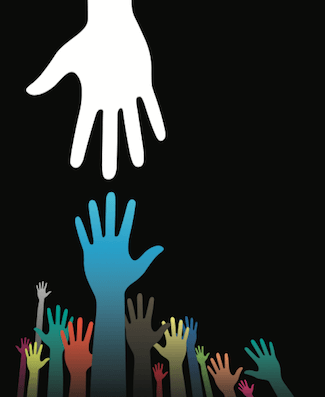BY BETH ENGLISH
When I first started with BedTimes, I tried to get up to speed on companies and people by reading our News and Newsmakers sections.

Beth English
Managing Editor
In the first magazine I picked up, I remember seeing one article that struck me in particular—it was about a brand that had donated mattresses to make a difference in the lives of a group of people. Sound familiar?
I’ve read various versions of that same story over the past several years, and each time my reaction is the same—immense gratitude that people in this industry find ways to help. Aside from food, shelter and clothing, a place to lay your head is an essential need. Having a clean, comfortable and supportive bed in a time of crisis makes an enormous difference.
Julie A. Palm’s story, “The Power of Good Deeds,” explores our industry’s long-standing tradition of giving back. She cites compelling reasons for corporate giving, as well as practical advice on how to pursue philanthropy. Let’s face it—giving is good for you. In fact, one report found a link between companies that donate and overall corporate growth rates.
But what does generosity do for you on an individual level? We’ve all heard it’s better to give than to receive. Science backs this up.
A 2016 study by neuroscientists at the University of Zurich in Switzerland took a look at how generosity affects the brain. They found that even thinking about doing good improves mood, according to a July 14, 2017, article on Time.com.
The researchers told 50 people they soon would receive $100. Half the group was told the money was for spending on themselves. The other half was asked to spend the money on others. Then the researchers conducted functional MRI scans on their brains. Each person—regardless of which group they were in—was asked to think of a friend they’d like to give a gift to and how much they hypothetically would spend.

But here’s another aspect that was interesting: Just the thought of giving money away made people happier. It didn’t matter how much each person planned to give.
“It’s worth keeping in mind that even little things have a beneficial effect—like bringing coffee to one’s office mates in the morning,” says lead author Philippe Tobler, associate professor of neuroeconomics and social neuroscience.
Other studies bear out the idea that doing good is good for you. Older people who are generous tend to have better health, and spending money on others is as effective at lowering blood pressure as medication or exercise, Tobler notes in the article. “Moreover, there is a positive association between helping others and life expectancy,” he added, “perhaps because helping others reduces stress.”
If the pages of BedTimes are any indication, generosity and philanthropy are alive and well in the sleep products industry. And while just thinking about giving makes people happier, I’m thrilled that our industry goes beyond thinking to doing. Keep doing good—both on a corporate level and an individual level. You’ll be glad you did.




